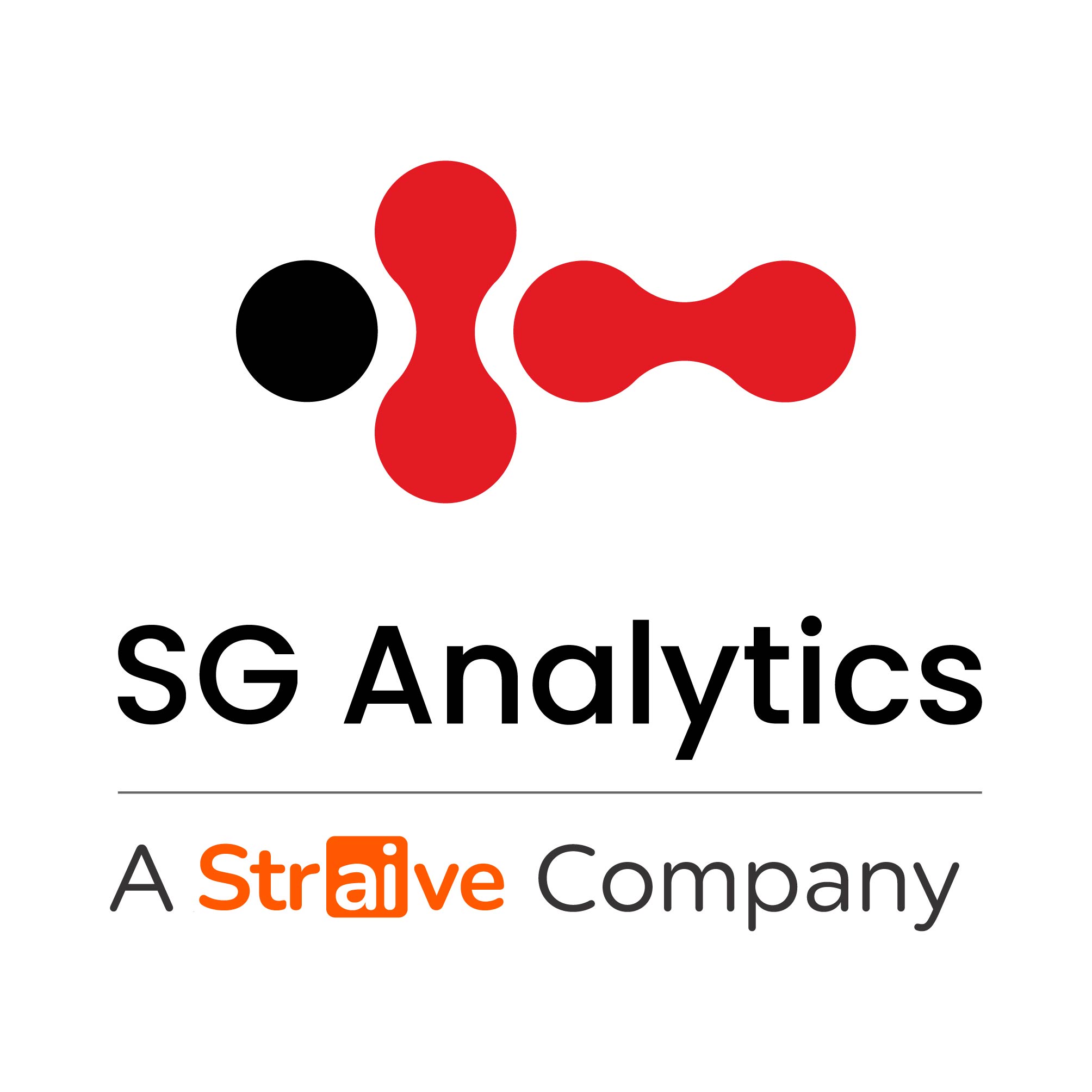- Resources
- Blog
- How Investment Banks Are Using Analytics to Transform Deal-Making
How Investment Banks Are Using Analytics to Transform Deal-Making
Deal Execution
Contents
July, 2025
The New Age of Investment Banking in the Era of Analytics
Investment banking is undergoing a radical transformation. After all, the traditional model, hitherto dominated by relationships, intuition, and outdated systems, is being rewritten more and more by data-centric deal-making activities. As a result, today, analytics, powered by artificial intelligence and highly adaptable machine learning models, are turning into the new backbone of deal-making at investment banks (IBs).
As investment decisions become more complex and deadlines shorten, bankers are turning to advanced analytic tools. They want to remain competitive. Furthermore, the analytics support that investment banking outsourcing providers deliver can contribute to improvements in deal-making strategies. Whether it is mergers and acquisitions (M&A), issuing equity, or assessing debt structures, the infusion of analytics has become a necessity across global IBs.
Investment banks now operate in a new world where processing speed, reporting precision, and smarter computing systems have evolved into key differentiators. Real-time data, predictive analytics, and data visualization are also integral to boutique and bulge bracket IBs as they can assist in perceiving hidden patterns and unexplored opportunities. This post will emphasize how investment banks are using analytics to transform deal-making and related responsibilities.
Read Also – How US Investment Banks Are Expanding Globally: Opportunities and Risks
Why Analytics is Critical in Modern Deal-Making
The game of deal-making has never been more competitive or multifaceted. From geopolitical uncertainty to complying with regulations, investment bankers now have to manage a set of variables that were not quite so urgent ten years ago. However, analytics meets this challenge by bringing clarity to uncertainty and order in chaos.
Analytics assists investment bankers in making quicker, informed decisions. For example, predictive models can forecast probabilities of deal success, the best time to enter the market, or risk exposure in cross-border deals. Historical data analysis identifies trends in the performance of target firms, while sentiment analysis keeps track of the way the market responds to a particular type of deal or announcement.
In addition, regulatory requirements are increasing, impacting deal sourcing services worldwide. Compliance teams must now have a thorough understanding of transaction history, financial projections, and stakeholder interests. At scale, analytics facilitates this. Analytics also assists in minimizing human bias, enhancing valuation precision, and optimizing due diligence.
Speed is yet another aspect. Ingestion and processing of real-time data enable bankers to react to changes in the market. During competitive bidding, having the capability to consume, interpret, and respond to data before other bidders can frequently be the crucial factor that affects who wins or loses a deal.
Read Also – Top Investment Banking Firms in the USA
Key Areas Where Investment Banks Use Analytics
Analytics in investment banking finds application across a broad range of functions. The following are the most important areas where analytics is revolutionizing deal-making.
1. Mergers and Acquisitions (M&A)
Analytics in M&A is applied to target screening, deal valuation, estimating synergy, and post-merger integration. Advanced models forecast how a merger would impact market share, pricing power, and cost structures. They also enable scenario analysis, comparing results under different economic or regulatory scenarios.
2. Equity Capital Markets (ECM)
Predictive analytics assists banks in pricing initial public offerings (IPOs), estimating investor appetite, and timing the market. Through historical IPO analysis and examination of the prevailing market volatility, bankers are able to offer more precise valuations and attract the appropriate investor types.
3. Debt Capital Markets (DCM)
Analytics assists bond pricing, credit risk models, and issuance strategy here. It helps build more detailed credit risk profiles and facilitates forecasting changes in interest rate markets.
4. Financial Due Diligence
Due Diligence Support Services, enhanced by analytics, refine the process by evaluating financial statements, revenue trends, customer information, and cost anomalies, while machine learning algorithms quickly identify irregularities or fraudulent activities, saving time compared to conventional techniques.
5. Client Relationship Management
Analytics is applied by investment banks to customize services for clients. By monitoring client behavior and investment activities, banks can foresee client requirements and modify their pitch books or advisory services in response.
6. Risk Management
Analytics enables banks to measure market, credit, and operational risks at granular levels. Through simulation of a variety of possible adverse scenarios, investment bankers can adopt more effective hedging practices and meet Basel III and other capital adequacy standards.
7. ESG and Sustainable Finance
Environmental, social, and governance (ESG) metrics are vital in investment choices. Analytics enables the estimation of ESG compliance ratings. That allows for better alignment with sustainability objectives. Moreover, IBs can examine related non-compliance issues that might upset some clients and cause reputational harm in the future.
Read Also – Investment Banking Industry Trends
5 Leading Investment Banks Using Analytics
The world’s top investment banks are making significant investments in analytics platforms and capabilities. Here is how five of the most elite investment banking firms are at the forefront of leveraging investment banking IT solutions.
1. Goldman Sachs
Goldman Sachs has infused analytics deeply into its business through its Marquee platform. Marquee provides real-time access to proprietary data, risk analytics, and price models. It is utilized by internal teams and institutional clients for modeling trade scenarios, assessing market risk, and searching for investment opportunities.
Goldman’s in-house engineering groups also built sophisticated machine learning capabilities to aid in M&A target search and portfolio optimization. Their investment in AI powers dynamic deal scoring and smarter matchmaking between buyers and sellers.
2. J.P. Morgan
J.P. Morgan applies analytics throughout its investment banking activities using its COiN (contract intelligence) platform and Athena trading engine. COiN, which employs natural language processing (NLP), examines legal and financial documents, shortening review time from hours to seconds.
J.P. Morgan uses predictive analytics in deal-making to model investor sentiment, deal performance, and market reaction. Its analytics-based strategy was used most notably in handling IPOs and SPACs during the past years of market volatility.
3. Morgan Stanley
Morgan Stanley leverages data analytics and data science in strategic advisory and capital markets services. Its AI technology helps to optimize roadshows, identify investor interest, and model different financing structures. Data dashboards monitor real-time statistics on valuation updates, regulatory releases, and competitor moves.
The bank’s recent developments also involve investments in quantum computing research to ultimately turbocharge portfolio optimization and risk analysis beyond computational capabilities today.
4. Citigroup (Citi)
Citi has made investments in data analytics platforms to make the financial modeling process more automation-friendly. That is why it can swiftly evaluate intricate deal structures. The investment banking leader also employs sophisticated statistical techniques to model macroeconomic conditions and their effect on client portfolios.
Citi also embeds ESG analytics into its advisory offerings, enabling clients to quantify sustainability performance and position themselves for green funding opportunities. With collaborations with technology companies, Citi regularly updates its analytics capabilities to remain ahead of digital evolution.
5. Bank of America Merrill Lynch (BofA)
BofA has developed powerful analytics platforms around its trading and deal-making desks. For instance, their Quartz platform is a proprietary risk and analytics engine that analyzes fixed income, equity, and derivatives trades in real-time.
In investment banking, BofA applies analytics to rank the opportunities of deal origination, identify client behavioral patterns, and measure liquidity risks. Their human-AI hybrid teams apply analytics to optimize M&A strategy, particularly in sectors such as technology and healthcare, where valuations are complicated.
Read Also – How Back-Office Outsourcing Services Streamline Banking Operations
Emerging Technologies Reshaping Investment Banking Analytics
The future of analytics in investment banking is being framed by new technologies that deliver greater insights and more rapid execution. The following are some of the most important technologies behind this shift, facilitating efficient deal execution.
1. Artificial Intelligence and Machine Learning
AI systems go through large data sets to make recommendations, predictions, and risk ratings. Meanwhile, ML algorithms refine valuation models, pick up on market trends, and spot undervalued assets or target acquisitions. So, together, these technologies get better with increased data input into the systems.
2. Natural Language Processing (NLP)
NLP enables computers to comprehend human language in legal contracts, earnings reports, and social media. Consequently, NLP is used by investment banks to read sentiment, extract essential data points, and automate reviewing financial statements and filings.
3. Robotic Process Automation (RPA)
RPA repeats tasks like report creation, data entry, and compliance testing. In deal-making, this allows bankers to concentrate on strategic work while bots manage ordinary data updates and formatting.
4. Blockchain and Distributed Ledgers
While in the nascent stage of adoption, blockchain has the ability to increase transparency and security in M&A transactions, particularly cross-border transactions. Smart contracts on blockchain platforms could potentially automate closing conditions and escrow releases.
5. Cloud Computing and Big Data Platforms
Cloud platforms facilitate scalable storage of data and real-time analytics. Simultaneously, hybrid models that combine internal data warehouses with third-party APIs and market feeds are now being implemented by investment banks. This facilitates quicker decision-making and collaboration between globally distributed teams.
6. Quantum Computing
Although in the experimental stages, quantum computing has the potential to transform analytics into solving problems that are too complex for classical computers. Investment banks are looking into their application in portfolio risk modeling, cryptography, and optimization algorithms.
Conclusion
Investment banking is not all about relationships, handshakes, and boardroom diplomacy anymore. Instead, it is a business that is being thoroughly reshaped by newer data practices. Analytics platforms are undoubtedly impacting deal-making workflows as they get smarter, faster, and more informed.
That is why, from Goldman Sachs’ Marquee platform to J.P. Morgan’s COiN and BofA’s Quartz engine, top investment banks are leveraging analytics to get ahead of the competition. As a result, they are spotting better deals, advising clients better, and handling risk better.
As new technologies such as AI, NLP, and quantum computing develop, investment banks’ analytical strength will only become more potent. On one hand, those who evolve with the change will shape the future of deal-making. Meanwhile, those who do not risk falling behind in a data world.
In this new situation, analytics-led innovation in investment banking solutions will be essential to surpass rival firms. Still, applying analytics to strategy might demand practical partnerships with data partners who have a track record of creating value for IBs and their stakeholders.
About SG Analytics
SG Analytics (SGA) is a global leader in data-driven research and analytics, empowering Fortune 500 clients across BFSI, Technology, Media & Entertainment, and Healthcare. A trusted partner for lower middle market investment banks and private equity firms, SGA provides offshore analysts with seamless deal life cycle support. Our integrated back-office research ecosystem, including database access, design support, domain experts, and tech-enabled automation, helps clients win more mandates and execute deals with precision.
Founded in 2007, SGA is a Great Place to Work® certified firm with 1,600+ employees across the U.S., the UK, Switzerland, Poland, and India. Recognized by Gartner, Everest Group, and ISG and featured in the Deloitte Technology Fast 50 India 2023 and Financial Times APAC 2024 High Growth Companies, we continue to set industry benchmarks in data excellence.
Related Tags
Deal Execution Investment Banking Investment BanksAuthor

SGA Knowledge Team
Contents